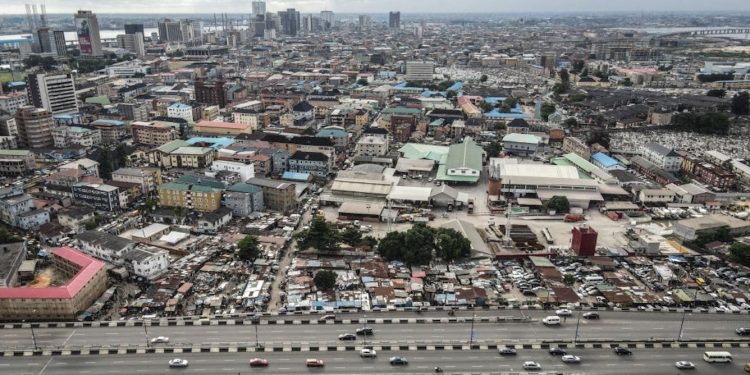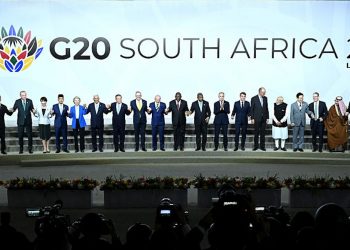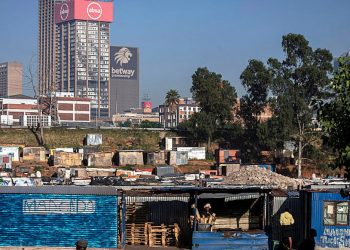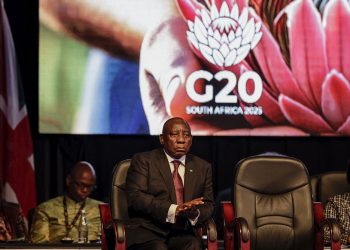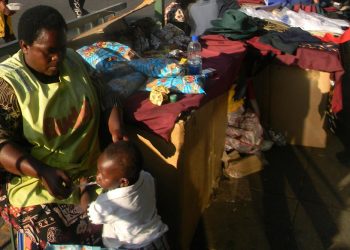Africa’s population is projected to nearly double by 2050, with 80% of that growth being concentrated in urban areas, leaving two out of three Africans living in cities. This expansion of cities at an unprecedented rate will bring both challenges and opportunities for African countries. In this edited extract from a discussion with the OECD’s Women Leading Change podcast series, feminist urban economist Astrid R.N. Haas explores three pillars for inclusive and sustainable growth: governance, planning and financing.
What can policymakers do to plan effectively for this rapid growth?
Policymakers must be more proactive. They need to anticipate future needs for infrastructure, services and housing. And they need to plan and invest in those spaces.
To do this, national policymakers must treat urbanisation not just as a city issue, but as a national priority. If they work properly, cities are engines of growth for the whole country. National strategies must support cities with appropriate policies, financing mechanisms and investments.
So African institutions must fit the purpose and context. Institutions must have clear responsibilities to avoid fragmented decision making. Administrative structures must underpin this, not only from a sectoral but also from a geographic perspective.
One challenge is that local governments are often positioned under the authority of national governments, and in many contexts, working at the local level may not carry the same level of recognition or prestige as national roles, despite the critical responsibilities they shoulder.
The one place that is working to overcome this is South Africa, where the municipal government is a separate sphere of government but equal to the other levels. Here the national treasury is working towards developing a single remuneration framework so that employees performing the same tasks in different spheres of government are compensated equitably.
More thought needs to go into how to support other cities across the continent in a similar way, ensuring they are adequately staffed in terms of numbers and skills. It is about making local government a more attractive place for talent to work and grow.
Most importantly, effort needs to go into making sure governance structures are both legitimate and responsive to citizens. Local government, as the level of government closest to the people, plays a critical role in this. Local authorities must be equipped to engage with residents and incorporate their priorities into decision-making.
What steps can governments take to create long term financing strategies?
African governments must plan beyond the typical two-, three- or five-year horizons. Long-term planning is often challenging because it doesn’t align with shorter political cycles. But infrastructure and service delivery require sustained, long-term investment and commitment.
We also need to think carefully about which services and investments should be the responsibility of government, and which can be delivered by the private sector. Policymakers play a crucial role in prioritising interventions that offer the greatest public benefit, whether by boosting productivity, advancing key social goals like livability through expanded social housing and services, or, ideally, both. Once priorities are set, investments must be appropriately balanced between public and private actors to ensure impact and equity.
How can policymakers guide sustainable and economically productive urban growth?
By making investments in the places people are moving to. This can be done through projections and then urban expansion planning. And here the OECD is at the forefront of some innovative work on data production for African cities.
Together with the United Cities and Local Governments, an association of local and regional governments, they’ve also produced what is probably the most comparable data on subnational financing: the World Observatory on Subnational Government Finance and Investment.
Used well, data like this can help more equitable decisions to be made. These tools can show us where populations are expanding, where services are lagging, and how people move and work across urban areas. Policymakers can then respond with targeted investments that improve livelihoods and expand opportunity. Therefore, for people like me who work with cities, data is an invaluable resource.
A note of caution is also in order. It’s not just about what the data shows, it’s also about what it leaves out. Who’s missing from the numbers? Who isn’t represented? What don’t we see? And why?
If people are underrepresented in official data sets, they risk being forgotten in policymaking too. That is why it is so important that institutions like the OECD not only produce data, but also help identify and fill these gaps. Governments also need to find ways to complement official statistics to “see the unseen” and build a fuller picture of urban life.
An example is the role of women in the informal food economy, urban agriculture, and service sectors. Their contributions are immense, yet often invisible in the data. That invisibility poses a major challenge for urban planning.
Can municipal financing be reimagined to prioritise gender equity and inclusivity?
Most cities around the world have been designed predominantly by men, and, more specifically, by white men from privileged backgrounds. As a result, even today, in cities across Europe and the US, urban spaces continue to reflect patriarchal notions of livability. They often fail to account for the different ways that women and other marginalised groups experience life in cities.
In Africa most urban spaces are yet to be built as most countries have yet to fully urbanise. So there is this unique opportunity to design cities from the outset that are truly inclusive. And here, municipal financing is key. Where we get the money from, and how we spend it, will ultimately shape the urban outcomes that define our cities for generations.
On the revenue side, African countries must carefully examine how both formal taxes and informal fees affect different groups, men, women, and other marginalised communities, and consider who is bearing the greatest burden.
The expenditure side is, in some ways, deemed to be more straightforward. However, it involves trade-offs as African countries need to invest in infrastructure and services that expand not only economic but also social opportunity, such as accessible public transport, affordable childcare, and adequate public spaces.
Borrowing is another critical component of the municipal finance equation. If you look at the OECD-UCLG data, you’ll see that very few African cities currently have access to capital markets. This severely limits their ability to finance the infrastructure they need.
Even where borrowing becomes possible, it carries long-term responsibilities. Borrowing is not just a short-term financial tool; it’s an intergenerational contract. The funds borrowed today will be repaid not only by current taxpayers but by future generations as well.
The full discussion is available via this link.
Astrid R.N. Haas does not work for, consult, own shares in or receive funding from any company or organisation that would benefit from this article, and has disclosed no relevant affiliations beyond their academic appointment.

